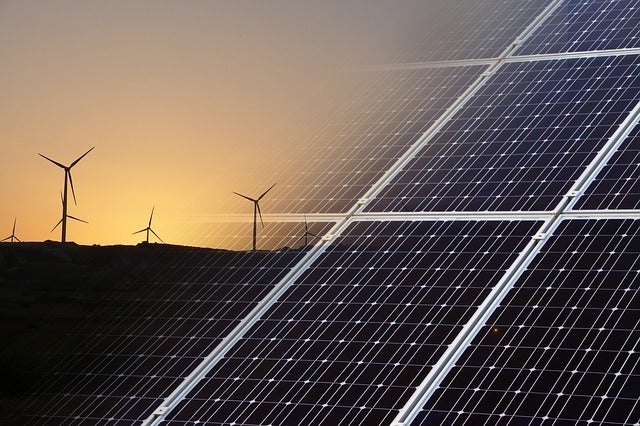
A plethora of blue ribbon US firms including the likes of Google, General Motors (GM), Walmart and more than 300 others launched the Renewable Energy Buyers Alliance (REBA) on 27 March.
The conglomerate-laiden group seeks to bring more than 60 gigawatts (GW) of renewable energy online as soon as 2025 by unlocking the clean power buying process across corporate America.
It seeks to do this by actively encouraging innovation in policy and education with regards to renewables, as well as revolutionising the market and its technology.
REBA’s leadership circle alone represents $1tn (£760bn) in annual revenue and more than 1% of annual US electricity consumption, highlighting the potential clout it could bring to bear on renewable power proliferation in the country.
“Every enterprise—whether it’s a bakery, a big-box retailer, or a data centre—should have an easy and direct path to buy clean energy,” said Michael Terrell, head of energy market strategy at Google and REBA’s first board chairman.
“Ultimately, sourcing clean energy should be as simple as clicking a button.”
Rob Threlkeld, global manager of sustainable energy and supply reliability at GM, added: “The REBA launch demonstrates that large energy buyers from across every sector are committed to doing their part to solve this problem.”
Meanwhile, REBA’s inaugural CEO and former US Air Force executive Mranda Ballentine explained: “Never before has such a diverse group of organisations, from every industry, come together to form an association with a single, market-focused, mission-driven vision of a zero-carbon energy future.”
What is the Renewable Energy Buyers Alliance?
REBA was originally established in 2014 as a coming together of four non-governmental organisations: Rocky Mountain Institute, World Wildlife Fund, World Resources Institute and Business for Social Responsibility.
Priya Barua, a senior manager for utility innovation at the World Resources Institute, told NPR: “It’s not just creating options for [corporate and industrial] customers, but using their collective buying power to create options in the market that would benefit everybody.”
The organisation remains true to its roots and now seeks to create a carbon-free energy system that makes it as simple and cheap as possible for organisations to access clean power.
The corporate demographic it is targeting was responsible for the production of more than two billion tonnes of greenhouse gases last year.
REBA seeks to make it easier for them to mitigate this, with 70% of Fortune 100 companies already having made their intentions with regards to that end clear by setting both greenhouse gas emissions reduction and renewables purchasing targets over recent years.
Any organisation that is a non-residential energy buyer, a clear energy developer or similar service provider is free to apply for membership.


